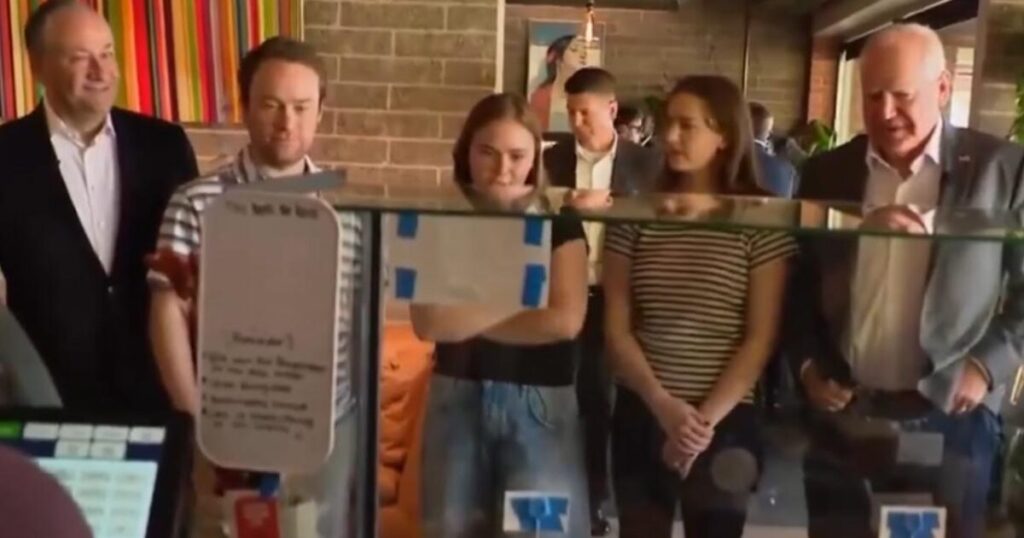The incident involving Doug Emhoff, husband of Vice President Kamala Harris, and Minnesota Governor Tim Walz highlights a rather unusual moment during their visit to Otro Café in Phoenix. As they ordered their drinks—a coffee for Emhoff and an iced tea for Walz—the atmosphere quickly became awkward, capturing the attention of onlookers. After receiving their orders, both men casually walked out of the café without settling their bill. This surprising action led to a scramble by Walz’s daughter, Hope, who attempted to salvage the situation by retrieving a staffer’s credit card to cover what was owed.
The initial reactions to this incident were marked by confusion and disapproval. Onlookers and staff were undoubtedly taken aback by the apparent disregard for basic civility and responsibility displayed by these two prominent political figures. Hope’s effort to communicate with the staff that a payment would soon be forthcoming only underscored the discomfort of the moment. With a staffer being pointed out as the one who would cover the bill, the situation seemed further exacerbated by the fact that Emhoff and Walz did not make any effort to rectify the lack of payment themselves.
Those critiquing the incident seized upon it as a metaphor for broader issues with the Democratic party, using social media to express their outrage and disbelief. The scene quickly went viral, demonstrating how a single awkward moment can propagate discontent among political opponents. Especially in today’s hyper-connected digital age, such moments can be leveraged to paint public figures in less-than-flattering light, tapping into narratives about entitlement or a lack of accountability among the political elite.
In the days following the incident, various commentators and social media users expressed their opinions, framing the action as indicative of a broader trend among Democrats. This sparked discussions around accountability, civic responsibility, and the expectations placed on public figures. It brought to light questions about the behavior of politicians in informal social settings and the implications of their actions for public perception and political culture.
Moreover, the incident also raised concerns about the messages conveyed through public interactions. For many, the notion that high-profile individuals may feel entitled to bypass ordinary social norms struck a chord. The criticisms gained momentum as narratives around privilege and accountability intertwined with the identities of both Walz and Emhoff, who are noted for their positions of influence and wealth. The viral nature of the incident turned a simple coffee shop encounter into a focal point of criticism for their perceived lack of decorum.
Ultimately, this tongue-in-cheek episode serves as a reminder that no moment is too small to be scrutinized in the political arena. As the incident continues to ignite discussions about the behavior of political leaders and the optics of their actions, it underscores the intricate dynamics of public perception and the responsibility that comes with public office. Whether viewed as a minor faux pas or a reflection of deeper societal issues, it reinforces how such moments can resonate far beyond their immediate context.

